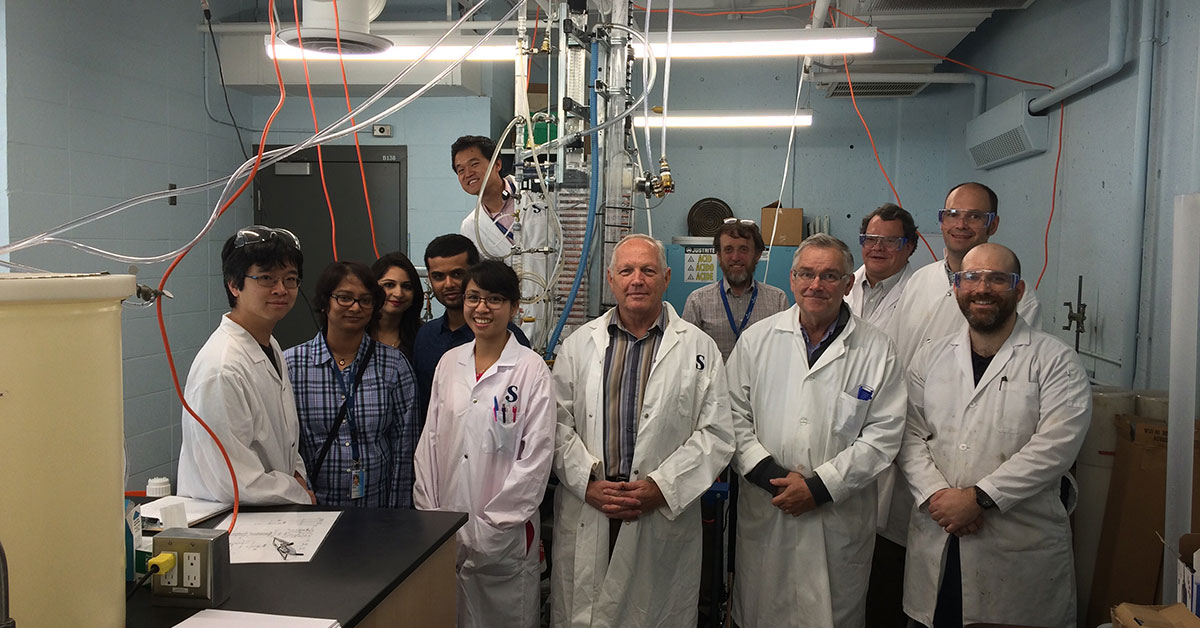Biofuels, processed from agricultural waste and other living matter, have long been seen as a key element in providing cleaner energy and fighting global warming. For more than two decades, scientists and engineers have been developing methods for producing ethanol from straw, wood chips, corn cobs and other waste material, called biomass.
But use of ethanol has been limited by the high cost of producing it. One key driver of cost is the inability of the microorganisms used in the process (which are usually genetically modified) to tolerate high levels of ethanol.
This was the focus of a partnership between Sheridan College and Drystill, a company that has developed an innovative process known as pass-through distillation. Its advantage is that it can be done at lower temperatures than most distillation, which preserves the expensive enzymes needed to create ethanol from biomass, thus greatly reducing cost.
The aim of the project was to design, construct, commission and test a pilot unit to demonstrate whether pass-through distillation can passively remove volatile components from a fermentation broth at room temperature and absorb them into a non-toxic brine solution with no net heat input in the process. The answer was yes, and once commercialized, this technology has the potential to make biofuel — such as ethanol made from agricultural residue — economically feasible.
The project took nine months from developing the proposal to completion, and involved four students. Two were Chemical Engineering Technology students, mainly involved in designing the process and constructing peripheral processes and the auxiliary equipment driving the pilot unit. Two Environmental Control students were involved in commissioning the unit and analysing samples from the trials. Because the process was so novel, many of the students’ activities focused on problem-solving and rapid prototyping, which allowed them to gain new skills that are in demand in Canada’s growing biofuel sector.
Every country that signed the Paris Agreement, including Canada, pledged to slow the build-up of carbon dioxide in the atmosphere. Biofuels such as ethanol are seen by governments and advocacy groups as one way to help do that. However, the high cost of producing them has stood in the way of widespread use. By distilling the ethanol economically at room temperature, this project could make advanced biofuels profitable to manufacture and sell.


